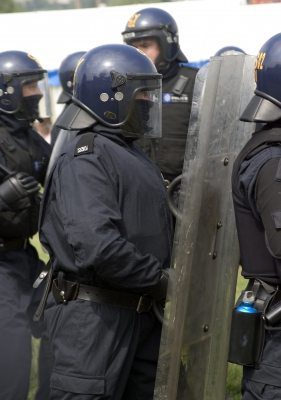It is both a curse and a blessing that we don’t know what other people think of us.
I am much better than I used to be, but I know that I still spend much of my time in conversation with an interior monologue that constantly questions everything I do and the impact that it has on others. In some ways being in a place where no one knows you, where you have a clean slate, should make this harder, but in fact I’ve found it easier as, to an extent, you have a liberty to create yourself without reference points.
you have a liberty to create yourself
Or perhaps it’s more correct to say that judging your own behaviour in a situation with no history attached forces a more objective assessment of what it is that you actually do. There is no precedent, and it makes you realise that, in fact, you do things reasonably well. Or at least would struggle to do them better, which is slightly different, and probably more in line with what I mean by “easier”.
constant shouts of oyibo and onyache the incessant staring had got a bit wearing
Over the last few days in Nigeria, and on the plane back to the UK, I found myself resenting the stares from all around and mentally telling these people to fuck off and stop judging me. About halfway home I realised I was being an idiot and that it was just curiousity, people wondering where the white man was going to, but as with the constant shouts of oyibo and onyache the incessant staring had got a bit wearing. Especially when it was the kid sitting next to me for six and a half hours and who also kept elbowing me in the ribs.
In fact, a lot of things had started to mount up, and the last two weeks of term were a stark reminder of how stupid the university is, how poor the organisation. But one nice moment in the midst of this was at lunch, when one of the guys who serves in the cafe brought my food over and started to talk to me.
I read every day whilst I’m eating, which has got me a few strange looks and made me think that they thought I was a bit mental. But this lad said, “You like to read novels?”
He mangled the last word (know-vells) so I didn’t quite get him, but once I did, I said yes.
“This is what I like to do. I like to read books not because it is course but just because something to do.” I smiled and said something vacuous, and he carried on, telling me he likes to read James Hanley Carter (I think) “because to build the inside mind.” I told him that I didn’t know the guy he was talking about (“psychology” – by which I think he meant self-help), but he seemed very pleased to have talked to me, and as this was more words than he’d said to me in the rest of the term combined, I was actually quite touched.
The seminar on equality clearly hasn’t made even the slightest impression
Not least because, as I said above, it’s interesting to have an insight into the impression you’re making on others, especially when it’s not what you expect, and also because he wanted to chat to me. The students and most of the other staff treat these guys like shit, always bollocking them for no reason, demanding things and generally making it clear that they are lower class. The seminar on equality clearly hasn’t made even the slightest impression from what I can see, and I can’t imagine a similar situation occurring with anyone else.
if you don’t rule the staff with a rod of iron then they’ll run riot
I try my best to be nice to these guys, and occasionally tip them N50. I’ve had Nigerians tell me that if you don’t rule the staff with a rod of iron then they’ll run riot (“give ‘em an inch, they’ll take a mile” type attitude) but I’ve found the opposite to be the case. Treat them like human beings and they’re far more likely to want to help you. The money helps, but I don’t think it’s all about that.
The same thing happens in Park’n’Shop, the guys that carry the shopping out to your car all look out for me (up to and including bollocking check out girls when they mis-enter something – which I would never notice), say hello and have a laugh on the way back to the car. Again, the fact that I tip well helps, but one of them told me “You’re not like all the other white people,” and when I asked him why, he said, “You’re more generous.”
Not a ringing endorsement, but I’ll take it. And note that I said it’s not all about the money.
***
Back in the country after a month away, the most strikingly surreal thing is the lack of the surreal. When I arrived in the UK, within 24 hours it was weird how strongly I felt like I’d never left. Although it took a conscious effort of will to drink water from the tap for the first time, and I kept forgetting to take a jumper with me when I went out and ended up freezing accordingly.
a conscious effort of will to drink water from the tap
Coming back is the same. I’ve been in the country for 17 hours, and already I can’t imagine being in Britain. This is partly because I unexpectedly went out for dinner and so have driven, negotiated with suya men and told small children trying to wash my car windscreen at a traffic light to desist in no uncertain terms, but I also think it’s just that constantly remarkable adapatability that characterises most of the human race. Give someone no choice and they’ll get used to almost anything more quickly than you, or they, could imagine. Just ask the KGB.
Whilst I’ve been away, two people I know have died. One in a tragic accident and another in the recent bombing at the UN building in Abuja. Another expat asked me before I came back how I felt about returning, and I had to say that it hasn’t really made any difference (although it clearly had to her). I don’t mean that there’s no emotional impact – both incidents in their own way are utterly awful – just that I still cannot associate either with an increase in risk for myself.
Partly, this is a consequence of my own inability to worry about external risk (on a prosaic level, I would, and have, for example, happily left places I’ve lived unlocked for days at a time, can’t bring myself to worry about fire risks and so forth and struggle to see potential danger in anything but the most hypothetical sense), but I think it is mostly just a genuine pragmatism. I find it as hard to be scared of things (well, except a couple, but more on that later) as I do to be angry about things. In fact, the only things I get worked up about tend to be ideas and most events don’t make me react they way they do many people, it seems.
the flashpoint is usually motivated by a genuine grievance
Within three days of my being back in the UK rioting erupted across London and various cities in a way unseen for decades, and in certain senses in a way that was unprecedented. I have been amazed not so much by the media reaction that just casts this as “out and out criminality” (a common phrase), but the extent to which friends and people of my age are willing to utterly write this off as an expression of some morally degenerate opportunism on the part of a certain sector of society. Not because I am defending the actions of any of the people involved, or suggesting that a huge amount of it wasn’t just taking what could be got for a brief window in which the usual rules of law and order were in effect suspended.
genuine anger over a man’s death at the hands of the police
Because the point is, for me, that there is not a single riot in history that does not, to a certain extent, follow this pattern. The flashpoint is usually motivated by a genuine grievance, but the aftermath is nearly always attributable to this in only an abstract sense and actually involves an outpouring of behaviour motivated by everything from greed and selfishness, to unfocused anger and frustration, born of everything from genuine social inequality and inequity, to perceived slights such as not having the phone you want, or that other people can afford more expensive trainers. Mark Duggan is no Rodney King, but if you actually look at the events in Tottenham there is no doubt that there was genuine anger over a man’s death at the hands of the police being all over the papers when, 48 hours after the fact, the police had not said a word to the family, and refused to do so, even when members of the community came to peacefully request information.
The bizarre police reaction to the trouble this caused (widely acknowledged to be inadequate, including by the Met themselves) of course led people in other areas to realise that if they went out and did the same the police weren’t going to step in.
And here lies the rub. Why were so many people willing to spontaneously go out and burn, loot, smash, pillage and generally cause trouble? Partly I think it is the spirit of the mob which lies closer to the surface of any society than we’d like to admit, but I think it’s dangerous to write this off as just mindless thuggery.
the spirit of the mob which lies closer to the surface of any society than we’d like to admit
I’m not suggesting that smashing the window of a JB Sports in Croydon was a cunningly articulated protest against stop and search policies or the decision to cut back on Sure Start, but to suggest that there are no social problems being expressed through, or at least reflected in these events is, for me, just bizarre. Nor am I saying that I buy the “broken society” rhetoric, or that “we’ve created an underclass” (rhetoric that has been doing the rounds this time, and was in the early 80s after Toxteth and Brixton) and nor am I solely attempting to point the finger at one political party, or the cuts of the last year.
I believe they contribute, but the genuine anger, alienation, dislocation and huge inequality in the UK has taken decades to create and is the fault of a huge number of factors, political parties and so on. I’m not saying we should excuse, forgive or feel sorry for rioters, but neither should we be suspending the proportionality that is the basis of our justice system in order to appease the anger of the middle classes. If that’s what we want then paediatricians would have been lynched all over the UK in the name of Sarah Payne, and many of the MPs who have been advocating hang ‘em high punishments would themselves have been nailed to Westminster Bridge by the larger of their two testicles after the expenses scandal.
there are more similarities between these riots and previous ones than people are making out
I would guarantee that 90% of the people in the Poll Tax riots couldn’t have told you even the first thing about the tax they were supposedly protesting about, even as many of the people you saw nicking TVs in the LA riots of the early 90s weren’t liberating property in the name of Rodney King, or the disgusting treatment of black people in LA and America in general. I’m not suggesting that Ealing is Compton, just that there are more similarities between these riots and previous ones than people are making out. And as much as modern social media made the contemporary events possible, it also made a form of reporting possible that has never happened before and that highlighted just how insane, meaningless, contingent and fragmented any form of rioting is.
When normal social rules are suspended it is shocking, not just because of the damage to property and life, but because it reveals how tenuous the veneer of “civilisation” is, and how abstract and fragile the rules and mores of “social” behaviour actually are. The social contract that we all exist within is a constructed tissue of strictures that are more ephemeral than we dare admit.
pat ourselves on the back that we’ve taught the riff-raff a lesson
This is not pinko-leftie, soft bellied apologia. I am not trying to say that 15 year olds with a hoodie and a half brick are symbols of the postmodern proletariat. But if we just give four years to FaceBook agitators, six months to the recipients of stolen shorts and pat ourselves on the back that we’ve taught the riff-raff a lesson then what have we possibly achieved? These events are the expression of social and cultural problems as much as they are the expression of the moral degeneracy of a social minority and to attempt to impose a homogenous explanation onto a hugely heterogeneous occurrence reduces us to the level of the Daily Mail. And no one wants that.
if large numbers of the public decide to ignore the rules then there is very little that the authorities can do about it
I do not believe there is anything inconsistent in deploring the policing of the anti-cuts marches over the last year as being too violent and deploring the policing of the first 48 hours (at least) of the recent riots for not using enough force. There was no need for water cannons (which would have been utterly ineffective against such relatively small groups of fast moving troublemakers) or rubber bullets, just a need for proper tactics and police numbers, which once instituted calmed things down very quickly.
The truth is that if large numbers of the public decide to ignore the rules then there is very little that the authorities can do about it, at least in the short term. The very trick of law and order is interpellation, in the Althusserian sense, or in other words to get people to recognise the call that is being made upon them by society when there is really no reason for them to do so, in many ways.
We don’t appreciate what we’ve got, to come over a bit Harold Wilson, and that applies equally to the skinny latte drinking chatterati as it does the rioters. Indeed, I’m tempted to say that the former are in some senses more shockingly complacent in their assumption of entitlement than the latter, whether or not they were out nicking iPads.
living in a society where there is no coherent state, social contract or sense of social responsibility
Enough. It goes back to the point I’ve already made about how living in a society where there is no coherent state, social contract or sense of social responsibility (ie. Nigeria) makes you appreciate all the more that much of what we complain about in the UK is utterly meaningless, whilst we let some of the more entrenched inequalities pass as read.
I am a cultural optimist, who doesn’t believe that the world has gone to hell in a handbasket, or is going to any time soon. I don’t believe that all the rioters were scum who should be chemically castrated and did what they did solely because they have the same general sense of morality as a sociopathic shark. As Rushdie said in a different context, when you simplify things down and create monsters or caricatures out of any form of evil, then it makes life hellishly easy for the rest of Us – because suddenly it’s just all about Them. And explanations are not the same as excuses.
It is always more complicated than anything you can say about it.
Everything is.
***
First day back at university, and we still don’t have any clocks. We do have another half completed building, a severe damp problem and an access road that is starting to make Kia have ‘nam style flashbacks to the drive to Afi. Poor thing.
a notable absence of students, which is nice
Term’s been delayed by 2 weeks, so we also have a notable absence of students, which is nice. They do tend to clutter up the place. Although this term we reportedly have anywhere up to 300 coming in, so it’s going to be less cluttering and more swamping.
I am determined to be laid back this time round – which given my naturally slothful, horizontal temperament perhaps doesn’t seem like the greatest challenge. But I know now that I set the bar too high for the students last term and tried to cram too much in, and bitter experience has also taught me that grappling with institutional incompetence on an individual basis is not so much futile as deeply masochistic. And futile.
Masochistic futility, in fact, which is not a professional lifestyle I personally relish in the long term.
So instead get it done, keep it simple, and hope for the best.
Convinced? I’m not sure I am.
Police picture by Tom Curtis


















